Fruits are one of the richest sources of vitamins and minerals. They are often used in various diets because they are not too high in calories, help dull the feeling of hunger, and have the properties of fat burners.
It is considered a natural source of various medicinal properties; fruits become an excellent option for the body.

Each fruit has characteristics that act in disease prevention and health maintenance. Check out below a list of fruits and their characteristics and health benefits.
Table of Contents
1. Apple
Apples contain vitamins A, C, B1, B2, magnesium, phosphorus, iodine, iron, selenium, potassium, calcium, and zinc. Together, they give us vitality, help us cope with stressful situations, improve brain function and strengthen the cardiovascular system.
Benefits
- Protect against cancer, heart disease, blood vessels, and aging
- Restore blood and lower blood pressure
- Improve digestion
- Lower cholesterol levels
- Help to lose weight
2. Apricot

Fresh and dried apricot fruits have laxatives, weak diuretic, tonic, and anti-atherosclerotic effects.
The fruit improves metabolism and hematopoiesis. It is a source of B vitamins, ascorbic acid, potassium, and iron. The fiber contained in apricots protects against colon cancer. In addition, it reduces constipation, hemorrhoids, and varicose veins.
Benefits
- Improve the condition of the skin vision and also protect cells from aging
- Reduce the damaging effects of aggressive free radicals on cells
- Inhibit the growth of cancerous tumors
- Inhibit the development of the bacterium Helicobacter pylori
3. Avocado
Avocados are high in potassium, fiber, and unsaturated fatty acids. Therefore, adding fruit to the diet helps normalize weight, lower cholesterol levels and provide the body with the necessary vitamins and minerals.
Benefits
- Contain a lot of potassium
- Serves as a source of healthy fats
- Rich in fiber and valuable for dietary nutrition
- Lowers cholesterol and triglyceride levels
- Accelerates the absorption of nutrients
- Rich in antioxidants
4. Banana
Banana is tasty and a healthy treat for the elderly, children, and adults. Its pulp contains many valuable trace elements that have a beneficial effect on the body.
Benefits
- Rich in vitamins B (B1, B2, B6), vitamin C, beta-carotene, calcium, potassium, iron, fluorine, and phosphorus
- Reduce the cholesterol level
- Normalize the gastrointestinal tract functioning and the cardiac system
- Help in the fight against stress, seasonal depression, and bad mood
5. Cherry

Cherry is a healthy and affordable seasonal berry, considered a natural antibiotic. Cherries treat numerous diseases, strengthen the immune system, and positively affect the human circulatory system.
Benefits
- Help in the treatment of heart and blood vessels diseases
- Natural antibiotics
- Give a feeling of satiety without extra calories and improve the digestion
- Lower blood pressure
- Relieve pain in arthritis, gout, and rheumatism
6. Clementine
Clementines are the closest relatives of tangerines, so they resemble this citrus fruit in appearance, only a little smaller in size. The taste of clementines is sweeter; they have a taste with honey notes.
Benefits
- Improve digestion
- Strengthen the cardiovascular system
- Increase immunity
- Normalize metabolic processes
- Positively affect the state of the nervous system
- Have anti-cancer properties
- Maintain visual acuity
- Have a beneficial effect on the functioning of the brain
7. Date
Dates have an excellent nutritional profile. Since they are usually dried, they are higher in calories than most fresh fruits. Dates are similar in calories to other dried fruits such as raisins and figs.
Most of the calories in dates come from carbohydrates. Despite their calorie content, dates contain essential vitamins and minerals and a significant fiber.
Benefits
- High in antioxidants
- Promote brain health
- Superior natural sweetener
- Prevent bone-related conditions (osteoporosis)
- Help regulate blood sugar levels
8. Dragon fruit
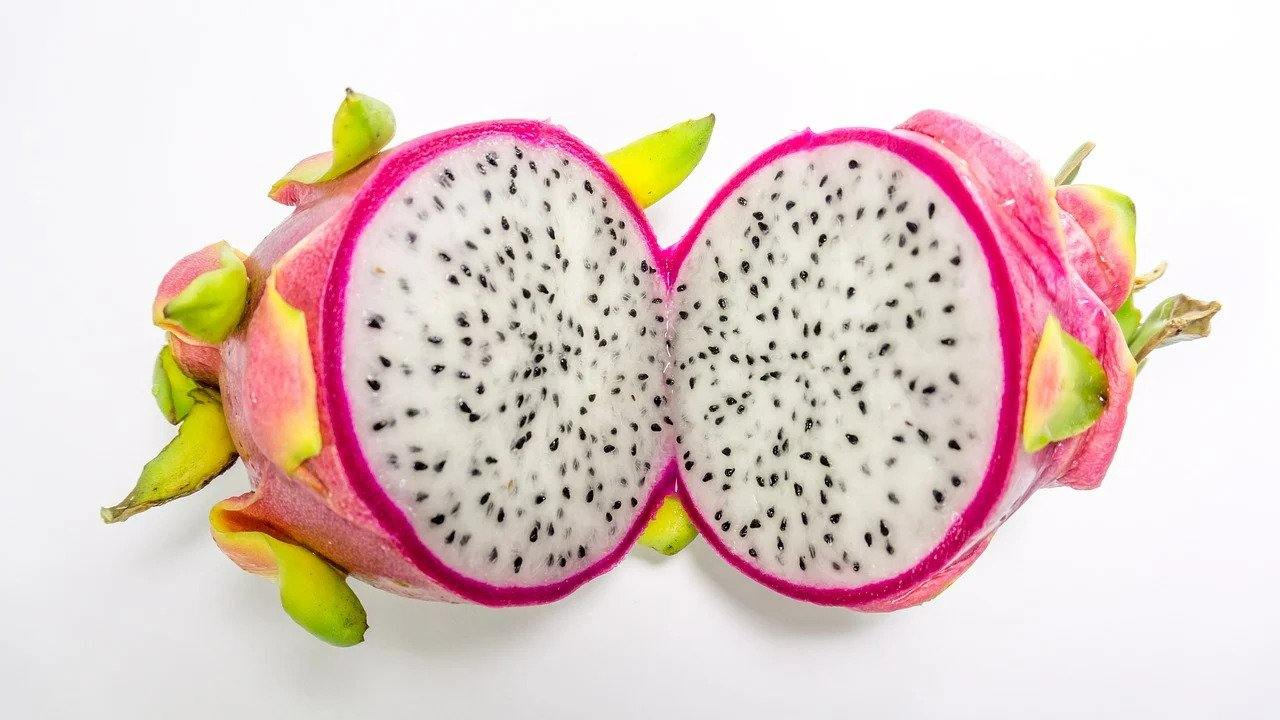
Dragon fruit is famous for its bright red skin and sweet, seed-spotted flesh. Its unique appearance and health benefits have made it popular with health-conscious people.
Benefits
- Help fight chronic disease
- Improve the balance of beneficial intestinal bacteria
- Improve immunity system
- Increase iron level
- Good source of magnesium
9. Elderberry
Elderberry is a dark brown tree with large leaves, white flowers, and black-purple berry fruits. It is grown mainly in Moldova, Turkey, Iran, Tunisia, Georgia, and several other countries.
Its parts are used for treatment: fruits, flowers, bark, branches, leaves, and even roots.
Benefits
- Strengthen immunity
- Help in treating cold
- Normalize gastrointestinal tract
- Diuretic effect
- Laxative effect
- Calm the nervous system
10. Fig

Fig is a fruit with incredible amounts of fiber that help balance blood sugar levels and prolong satiety throughout the day, favoring weight loss and preventing diabetes.
In addition, figs contain carotenoids, anthocyanins, and flavonoids, bioactive compounds with antioxidant properties. They combat free radicals and boost the immune system, helping to prevent premature aging, cancer, atherosclerosis, and heart attack.
Benefits
- Fight constipation
- Prevent high blood pressure
- Lower cholesterol and triglycerides
- Strengthen the immune system
11. Grape
Grapes are widespread and tasty berries that contain many essential nutrients.
In addition to the fruit of the grape plant, its seeds are also beneficial for health as they are rich in antioxidants.
Benefits
- Prevent blood clots and heart attack
- Prevent the oxidation of LDL (low-density lipoprotein, or “bad” cholesterol), which blocks blood vessels
- Eliminate constipation
- Lower the risk of diabetes
- Inhibit the development of cataracts
12. Guava
Guava is recognized as one of the healthiest fruits. Many doctors consider it simply necessary for the body to strengthen the immune system, improve digestion and restore vitality.
It contains two times more vitamin C in its peel than the whole orange. Therefore, its antioxidant properties are much higher than in the other fruits.
Benefits
- Improve cardiac activity and normalize blood pressure
- Has an anti-inflammatory, analgesic, antispasmodic, and anti-allergic properties
- Cure asthma, as well as infectious and cold
13. Honeydew melon
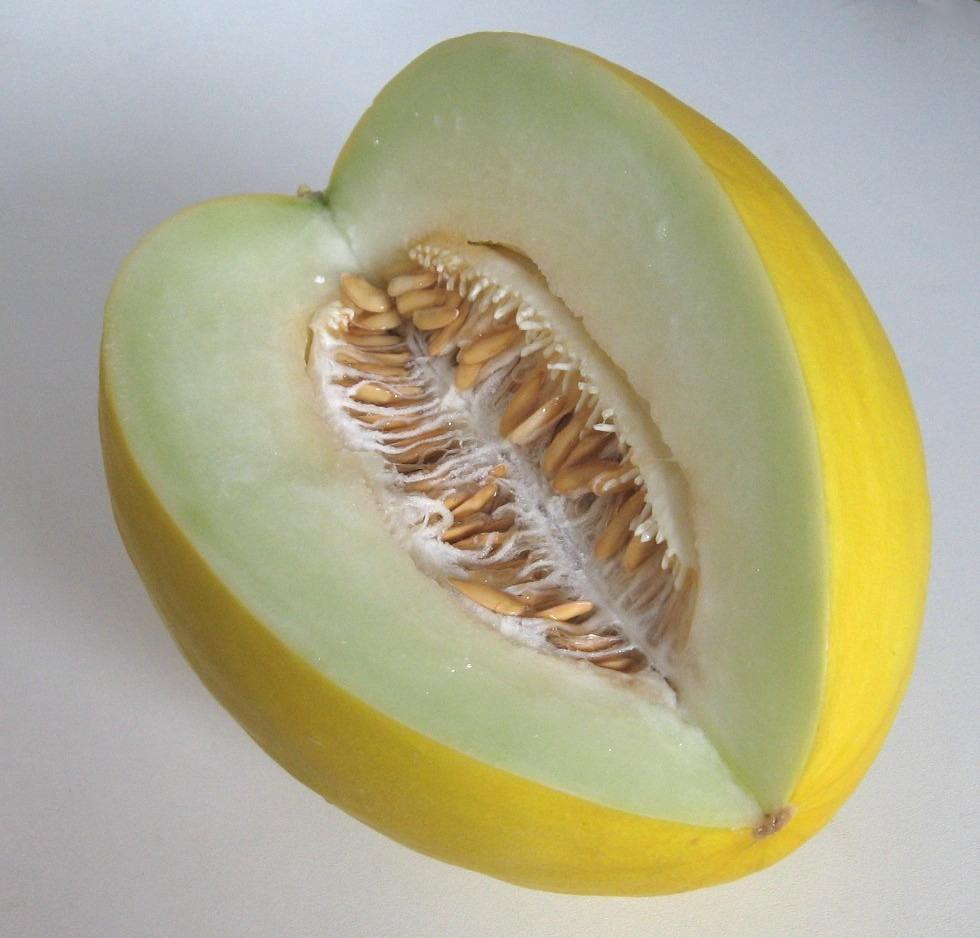
Honeydew is large, oval-shaped melon with a smooth rind and a pale center. Despite their name, honey melons do not contain sugar. Honeydew melons contain fiber and vital micronutrients, including vitamin C and potassium.
Benefits
- Prevent dehydration
- Promote heart health
- Help with diabetes
- Promote skin regeneration
- Protect vision
14. Ilama fruit
Ilama is an exotic fruit about 15 cm long and can weigh up to 900 g. Generally, the ilama is covered with more or less pronounced triangular lobes, although some fruits on the same tree can range from bumpy to relatively smooth.
Benefits
- Maintain the health of the red blood cells
- Promote growth and development, especially during childhood
- Act as antioxidants, preventing diseases such as cancer and atherosclerosis
- Participate in the production of energy in the body
- Maintain eye health and prevent cataracts
- Maintain skin and mouth health
- Maintain the functioning of the nervous system
- Decrease the frequency and intensity of migraines
15. Inga

Inga or ice cream bean is the fruit of the ingazeira, a tree widely found in South America. Despite not being one of the most favorite fruits, it is rich in excellent properties that greatly benefit your health.
Benefits
- Strengthen the bones
- Protect eye health
- Strengthen immunity
- Relieve pain in headaches and migraines
- Prevent cancer
16. Jackfruit
Jackfruit is the national fruit of Bangladesh. Jackfruit fruits are the largest edible fruits growing on trees: 20-90 cm long and 20 cm in diameter; they weigh up to 34 kg. Their thick skin is covered with numerous cone-shaped protrusions.
Benefits
- Strengthen the immune system, and support the activity of leukocytes
- Slow down the degeneration of cells
- Help fight peptic ulcers and digestive disorders
- Prevent macular degeneration and night blindness
- Reduce blood pressure
- Prevent anemia
17. Jamun/Jambul
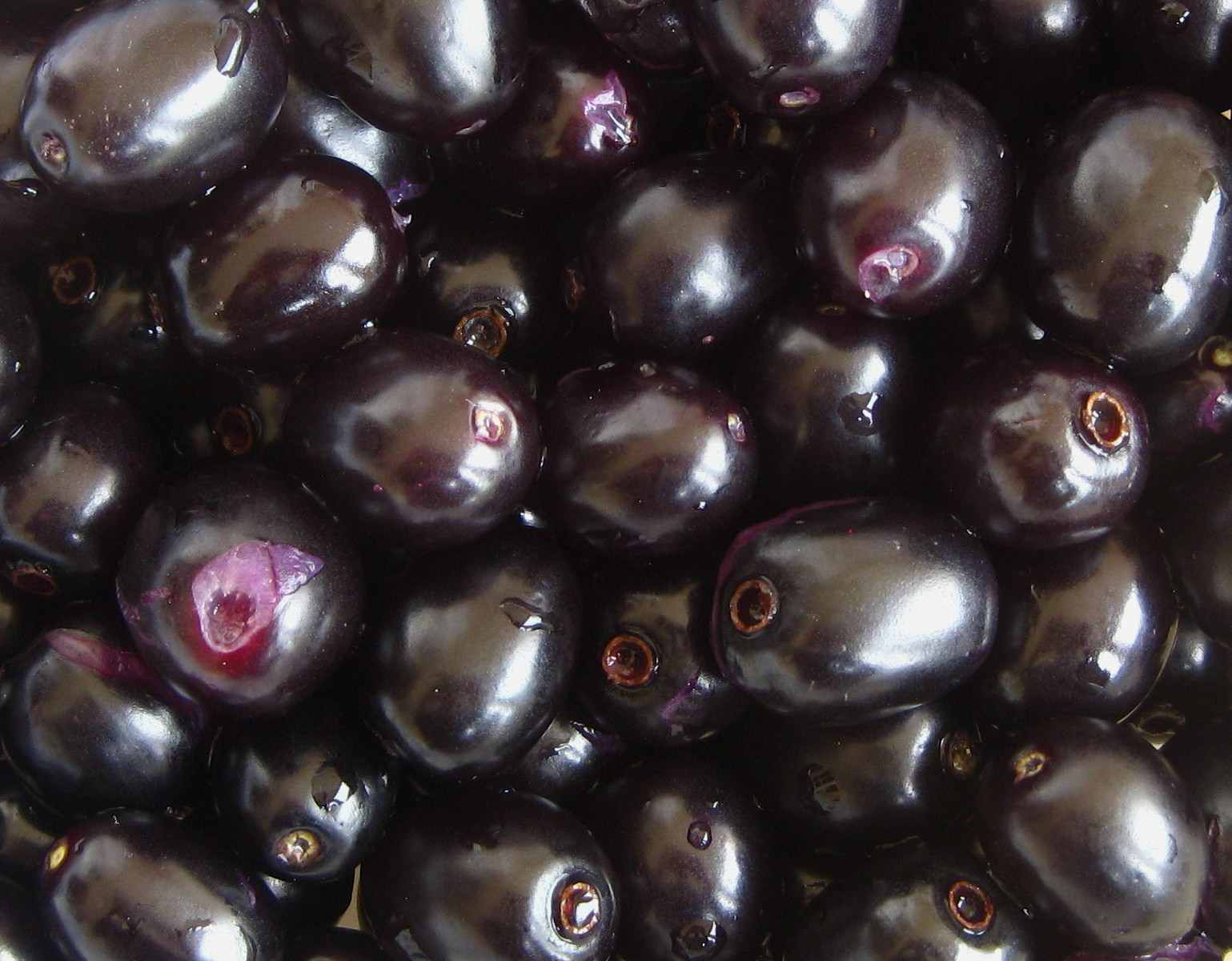
Jamun is better known as black plum, but it can also be called a jambul, java, or plum, depending on where you are.
Jamun fruit has a bittersweet flavor and is quite astringent, although this flavor can vary depending on when you choose the fruit.
Benefits
- Improve the skin appearance by reducing oxidative stress and lowering inflammation levels
- Increase the immune system
- Prevent heart attack and cardiovascular diseases
- Improve circulation
- Prevent cancer
18. Kiwi
Kiwi is a champion in vitamin C content, a storehouse of enzymes and antioxidants, and at the same time, one of the most dietary fruits. One fruit contains the daily requirement of vitamin C and nicotinic acid, vitamins A, E, and B, potassium, calcium, iron, and magnesium.
Benefits
- Improve digestion
- Prevent thrombosis
- Reduce blood pressure and control hypertension
- Reduce wrinkles and flaking of the skin
19. Lychee

Lychee is a unique fruit enclosed in a bumpy shell that grows on evergreen trees. The brittle peel of the fruit has a red or pinkish tint. The hardcore of the fruit is covered with juicy jelly-like pulp, which has a pleasant aroma.
Benefits
- Help in strengthening the heart and blood vessels
- Prevent many gastrointestinal disorders
- Relieve pain in neurological diseases and increase working capacity
- Tone the skin and protect it from dangerous UV radiation
- Prevent atherosclerosis
- Natural aphrodisiac
20. Lemon
Lemon is a bright yellow fruit that long earned widespread respect for its unique medicinal properties. A cup of lemon tea perfectly warms, helps the body cheer up, improves well-being, and increases resistance to infections.
Benefits
- Strengthen the immune system
- Increase the body’s resistance
- Kill microbes
- Reduce the formation of gases and normalize the digestive system
- Natural antioxidant and immunostimulant
21. Mango
Mango is called the “king of fruit” for a reason. It is a treasure trove of vitamins and minerals. The fruit helps take care of the heart and immunity when appropriately used.
Mango is considered a tropical aphrodisiac that enhances the attraction to the opposite sex. No wonder the fruit has such an attractive aroma, conducive to romance and sensuality.
Benefits
- Normalize vision and night sleep
- Strengthen the nervous system and immunity
- Minimize the risk of osteoporosis, atherosclerosis, and varicose veins
- Activate metabolic process
- Inhibit the development of kidney stones
- Stabilize the level of cholesterol and hemoglobin in the blood
- Stimulate heart and brain functioning
22. Macadamia Nuts
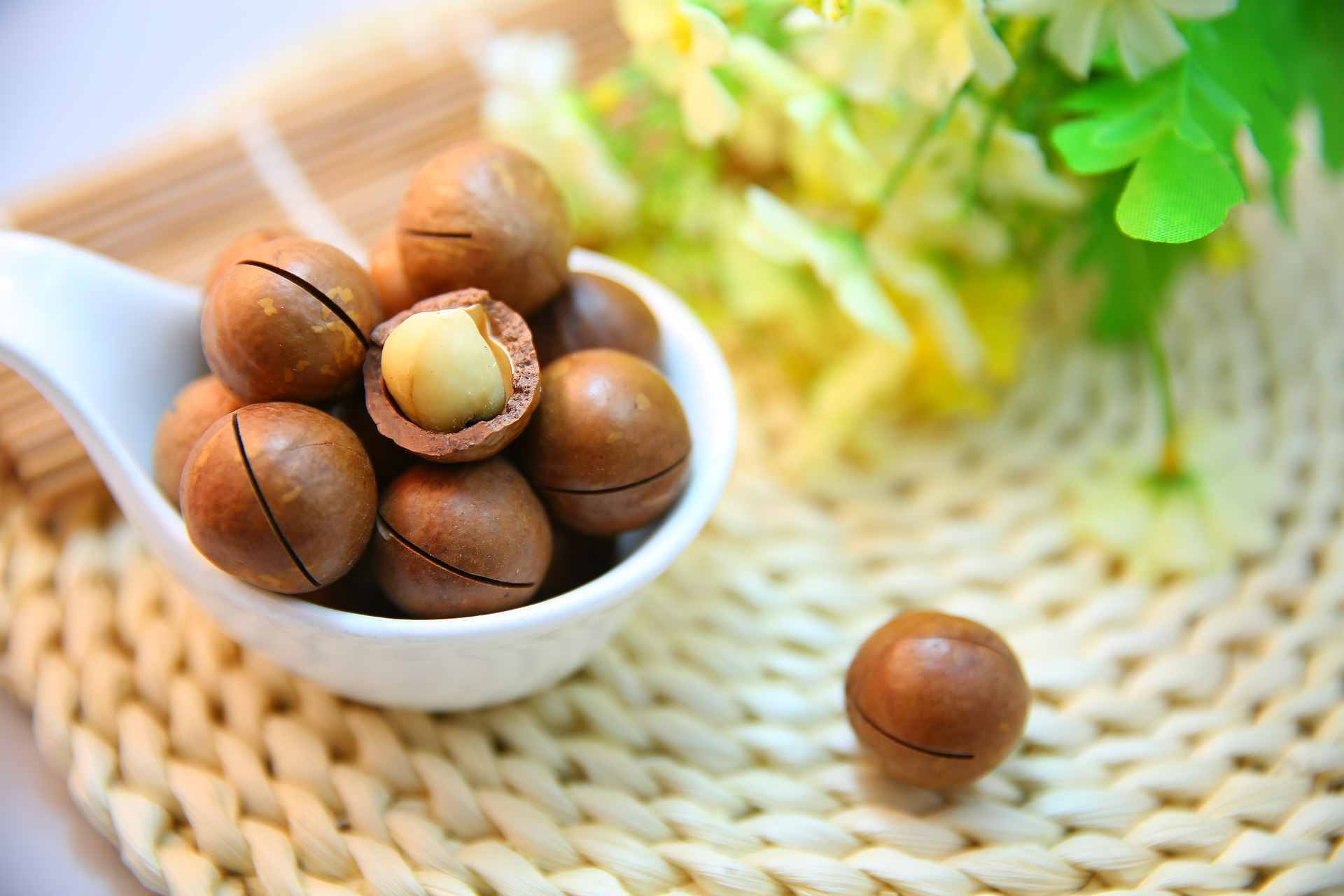
Macadamia nut is helpful for people of all ages. A rich vitamin composition of many healthy fats helps the functioning of the brain, reproductive, digestive systems, and more. The unusual delicate taste of the nut allows it to be used in culinary creations.
Benefits
- Improve the work of the digestive system
- Strengthen the blood vessels’ walls and increase the elasticity of capillaries
- Reduce bad cholesterol
- Stimulate immune processes
- Prevent the development of cancer
- Improve brain function, strengthen memory
- Fight against depression and bad mood, improve the emotional background
- Reduce the likelihood of gallstone disease and problems with the gastrointestinal tract
- Strengthen bone tissue, muscles
- Prevent the early aging process
23. Nectarine
Nectarine looks like a peach but brighter colored and completely lint-free; its skin is smooth and glossy. The taste of the fruit is sweeter than peach; the flesh is more elastic, dark yellow, juicy, and fragrant. The kernels of some varieties have a sweetish taste and can be eaten.
Benefits
- Retain moisture in skin cells
- Accelerate the body’s metabolic processes
- Stabilize the nervous system
- Strengthen the immune system
- Promote weight loss
- Prophylactic against the occurrence of kidney stones
24. Nut
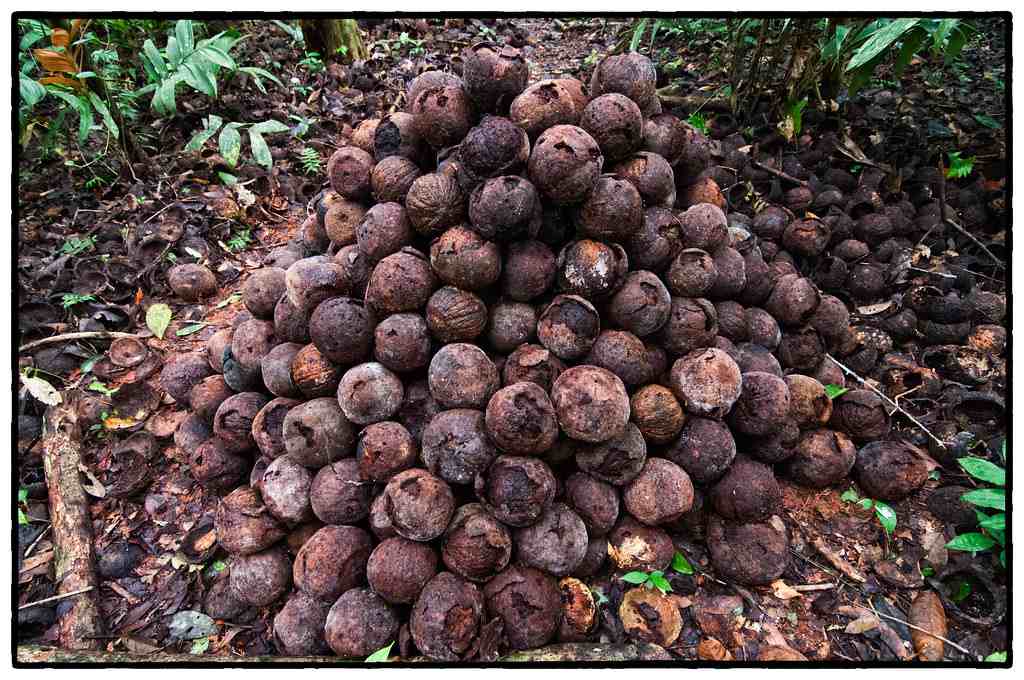
Nuts are nutritious fruit that contains a large number of fats, proteins, and vitamins. For vegetarians, during fasting and dieting, nuts are an indispensable food that can replace the missing elements of the diet.
At the same time, the fats in nuts are beneficial and benefit the heart and blood vessels without raising cholesterol.
Benefits
- Alternative to meat
- Eliminate toxins
- Satisfy hunger
- Help to fare with depression, lessen the harmful outcomes of stress and nervous tension
25. Orange
Orange is one of the most prominent representatives of citrus fruits. Its flavor is usually sweet or slightly acidic, depending on the type of orange. The fruit has flavonoids and several essential nutrients to prevent diseases and make the body more resistant.
Benefits
- Useful to treat beriberi
- Reduce the risk of stroke
- Prevent kidney stones
- Reduce the level of cholesterol
- Reduce the risk of cancer
- Improve brain function
- Reduce the risk of macular degeneration
- Keep away respiratory diseases
- Prevent cold and flu
- Prevent premature aging
26. Olive
The olive is a small fruit that grows in olive trees quite famous for being an ingredient used in world cuisine and its sharp flavor and fantastic aroma. This delicacy has a single seed surrounded by an edible pulp.
This fruit, known for having good fats and reducing cholesterol, also has vitamins A, K, E, zinc, selenium, and iron, among other minerals that bring many health benefits.
Benefits
- Strengthen the immune system
- Prevent atherosclerosis
- Prevent thrombosis
- Reduce blood pressure
- Prevent breast cancer
- Improve memory
- Reduce inflammation in the body
- Improve skin health
- Protect the retina and promote eye health
- Reduce bad cholesterol
27. Passion fruit
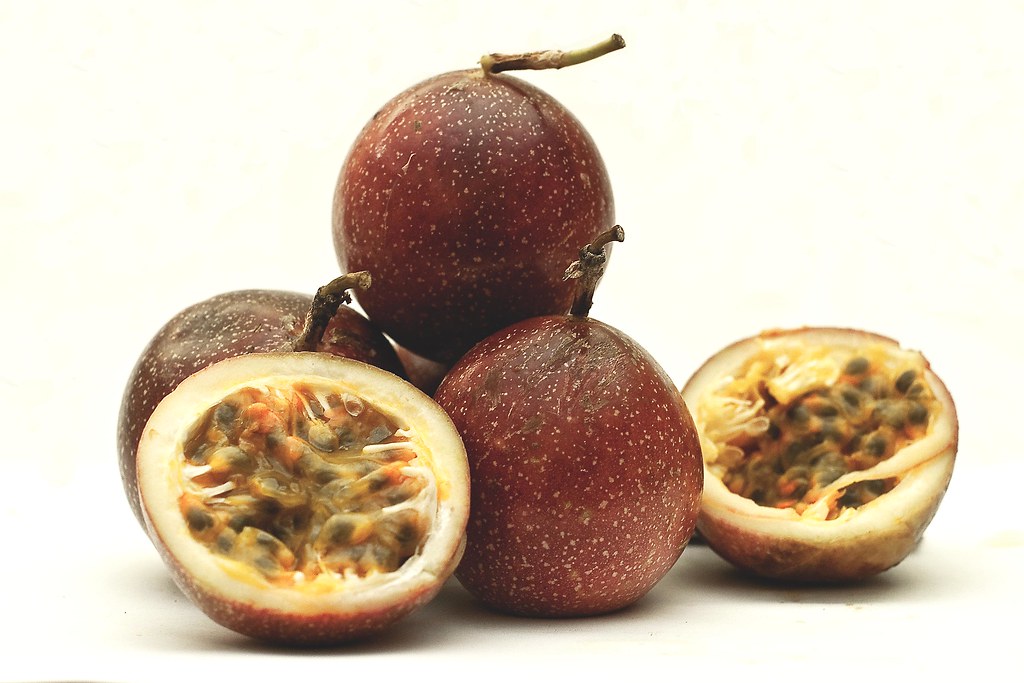
Passion fruit is the face of summer, full of benefits. In addition to being a natural tranquilizer, the fruit pulp is rich in vitamins from the B and C complex, responsible, among other things, for maintaining our mental and emotional health.
Benefits
- Prevent and fight against cancer
- Support the immune system
- Improve digestion
- Increase hemoglobin in the blood
- Improve eye health
- Regulate blood pressure
- Help maintain a good mood
- Relieve asthma
- Improve bone health and density
- Act against insomnia
28. Papaya
Papaya is a very juicy, fragrant, and sweet fruit grown in tropical latitudes. Exotic fruit is recognized as dietary produce since it does not contain carbohydrates and fats. The abundance of fiber contributes to the body’s detoxification and the removal of carcinogens.
Benefits
- Improve intestinal health
- Facilitate digestion
- Reduce blood cholesterol and triglyceride levels
- Maintain vision health
- Help maintain the health of the nervous system
29. Pineapple
Pineapple is one of the most beautiful and nutritious fruits there is. The benefits of including pineapple in any of its forms in your routine are many, such as improving digestive function and reducing the risk of various diseases, such as colorectal cancer.
Benefits
- Protect against cardiovascular disease
- Fight stress and improve mental health
- Strengthen the muscles
- Reduce swelling and contributes to the proper functioning of the body
- Decrease pain and delay aging
- Strengthen the skin
- Protect eyesight
- Help fight asthma
- Prevent infertility
- Protect the vocal cords
- Help the body recover after exercise
30. Pear

The pear is a mild, sweet-tasting fruit with a fibrous core. It is rich in vitamins, essential antioxidants, plant compounds, and mineral salts with low caloric value. In addition, pears are rich in fiber, helping to prevent digestive problems and constipation.
Benefits
- Improve gut health and help prevent obesity
- Promote a detox effect in the body
- Fight free radicals
- Control blood sugar level
- Improve the immune system
- Improve digestive functioning
- Help in weight loss
31. Pumpkin
Pumpkin is a highly nutritious food as it is rich in vitamins and minerals but low in calories. We can incorporate the fruit into the menu in several ways, such as soups, desserts, and main dishes.
We can consume the fruit with the peel, and even the seeds have interesting nutritional properties for the body. In addition, the fruit is easy to find, and its price is very inviting.
Benefits
- Prevent cardiovascular diseases
- Help you lose weight
- Prevent inflammatory and autoimmune diseases
- Prevent skin aging
- Help maintain eye health
- Enrich the baby’s diet
- Improve the process of metabolic stress
32. Quince

A historic symbol of love and fertility, the quince was consecrated in Ancient Greece to Aphrodite, the fabulous Goddess of Love, also known as the “golden apple.”
Despite its slightly bitter taste, inserting quince into the daily menu can enhance the body’s functioning since it is highly nutritious.
Benefits
- Help hydrate
- Help indigestion
- Control cholesterol
- Fight uric acid
- Treat diarrhea
- Relieve the symptoms of respiratory infections
- Reduce the risk of cardiovascular disease
- Help in preventing infertility
- Relieve Pregnancy Nausea
33. Raspberry
Raspberry is part of the “red fruits,” categories like blueberry, strawberry, and blackberry. It is a low-carb fruit and still benefits diabetes prevention.
It has proteins, soluble fibers, carbohydrates, vitamins A, C, and B9 (folic acid), and some minerals (such as potassium, calcium, and magnesium, among others); It is also rich in natural antioxidants aid in cell renewal.
Benefits
- Prevent macular degeneration
- Increase fertility
- Reduce bleeding during menstruation
- Prevent cancer
- Prevent wrinkle
- Lower cholesterol
- Balance blood sugar level
- Prevent heart disease
34. Red Currant
Red currant has many essential nutrients for the body’s general health. Red currant is highly precious for healing due to its significant vitamin complex.
Benefits
- Protect the brain from free radical
- Stimulate the recovery process and minimize injury
- Beneficial for skin conditions like eczema and also psoriasis
- Prevent urinary tract infection
- Improve blood flow during menopause
- Prevent dementia
- Improve cardiovascular health
35. Strawberry

Strawberries are among those berries that contain the most valuable nutrients. It is an excellent source of fiber, low in calories, and relatively low in sugar. The most significant health benefit is the high antioxidant content.
Benefits
- Slow down the brain’s aging process
- Prevent the development of macular degeneration of the retina, cataracts, dry eyes, progressive blindness, and other problems associated with age-related tissue changes
- Increase the body’s ability to resist the effects of free radical
- Normalize blood sugar levels
- Normalize blood pressure
- Inhibit inflammation and specific biochemical reactions associated with allergies
36. Star fruit
Starfruit is a delicious fruit low in calories but rich in vitamin C, fiber, and antioxidants. However, people with kidney problems or prescription medications should consult their doctor before consuming this fruit.
However, star fruits are a healthy and tasty addition to the diet for most people.
Benefits
- Boost the immune system
- Prevent inflammation
- Maintain blood pressure
- Prevent bowel cancer
- Prevent constipation
- Help in weight loss
- Help in hydration
- Help control insulin levels in the body
- Improve respiratory health
37. Tomato

Tomatoes are the fruit of the Solanum Lycopersicum plant, and many varieties vary in size, color, and taste. But their composition is about the same.
Tomatoes are an essential source of vitamin A and K and significant amounts of B vitamins, folic acid, and thiamine. One tomato provides about 40% of the daily requirement for vitamin C.
Benefits
- Protect against cardiovascular diseases
- Lower the bad cholesterol and triglycerides levels in the blood
- Reduce the risk of developing prostate adenoma and prostate cancer
- Maintain average blood circulation, normalize blood pressure and blood quality
- Improve eyesight and prevent night blindness
- Keep the digestive system healthy, stimulate peristaltic movements in smooth digestive muscles, and release gastric and digestive juices.
38. Tamarind
Tamarind is a sweet fruit of an evergreen tree from the legume family that grows in dense tropical forests. It is native to Africa and the island of Madagascar. It currently grows on all tropical continents.
It is widely used to give the dish an unusual sweet and sour taste and a special piquancy. A versatile seasoning is especially popular in South Asian cuisine.
Benefits
- Improve the cardiovascular system, and the gastrointestinal tract functioning
- Improve immunity, and improve hormonal levels
- Good effect on the reproductive system
- Beneficial in iron deficiency anemia
- Help in the fight against obesity
39. Ugli fruit

The ugli fruit is a citrus fruit of Jamaican origin. The fruit is greenish orange or yellowish and larger than an average grapefruit. This fruit is a rich source of nutrients, so it offers several health benefits.
Benefits
- Promote gastrointestinal health
- Improve the health of gums
- Boost immunity
- Reduce the risk of cardiovascular disorder and stroke
- Protect against the formation of kidney stones
- Regulate blood pressure
- Heal allergies
40. Vanilla
Vanilla is famous for its flavor and is often an indispensable ingredient in baked goods. In addition to the pronounced smell, this fruit has several significant benefits that allow it to be used in skin disease treatment, hair health, the cardiovascular system, and much more.
Benefits
- Relieve nervous tension, extinguishes such negative emotions as anger, rage, irritation
- Help control cholesterol levels
- Increase the immune system and speed up the recovery process after injury or illness
- Strengthen hair
- Relieve acne
- Normalize body weight
- Treat sore throat
41. Watermelon

Watermelon is a hydrating and healthy fruit that contains from 6 to 13% of easily digestible sugars ( glucose, fructose, and sucrose).
By the time of ripening, glucose and fructose predominate, and sucrose accumulates during watermelon storage. This composition of sweet watermelon causes many positive effects on the body.
Benefits
- Cleanse the liver and kidneys of toxins
- Positive effect on the formation of DNA and RNA, cell division, protein metabolism, the beauty and health of the skin, hair, and the functioning of digestion
- Prevent the aging process, protect the body from age-related disorders, fight free radicals, and help to resist the development of cancer
42. Walnut
The walnut is the fruit of a tree that can reach a height of 25 meters and live up to 400 years. Walnuts are comparable to meat in calories and protein content, only easier to digest.
The number of vitamins is superior to citrus fruits. They are recommended for beriberi, with iron deficiency, as a tonic; they positively affect the vessels of the brain and relieve nervous tension.
Benefits
- Improve memory and cognitive function
- Help prevent depression
- Improve motor function
- Reduce the risk of coronary heart disease
- Prevent hair loss
43. Yuzu

Yuzu is an exotic fruit native to ancient China. The fruit is a hybrid of a mandarin and an Ichang papeda; the fruit looks like a small grapefruit with a shriveled peel.
Yuzu’s color ranges from dark green to light yellow, depending on maturity. The flavor of yuzu is unique, taking the best from lemon, grapefruit, and mandarin.
Benefits
- Strengthen the immune system and increase the protective functions of the body
- Improve cardiovascular system
- Strengthen eye vision
- Strengthen teeth, bones, nails, and hair
- Normalize central and peripheral nervous system
44. Zucchini

Zucchini is usually called a herbal annual of the Pumpkin family, the closest relative of an ordinary pumpkin. Zucchini fruits have an elongated oval shape, light green, yellow, or almost white color.
The flesh of the zucchini is dense and elastic, young vegetables are very juicy, and inside the fruit, there are numerous seeds that we can eat.
Benefits
- Help fight infections
- Helpful in hypertension, diseases of the cardiovascular system, kidneys, and liver
- Prevent arthritis
- Whiten and moisturize the skin
Conclusion
Fruit consumption provides vitamins, fibers, and other substances capable of fighting diseases, preventing aging, and regulating the body’s functioning.
Therefore, the WHO recommends the daily consumption of three to five servings of fruit, according to the person’s needs. Now that you already know the beneficial properties of many a-z fruits, how about including them in your everyday diet.
(Last Updated on June 2, 2022 by Sadrish Dabadi)
